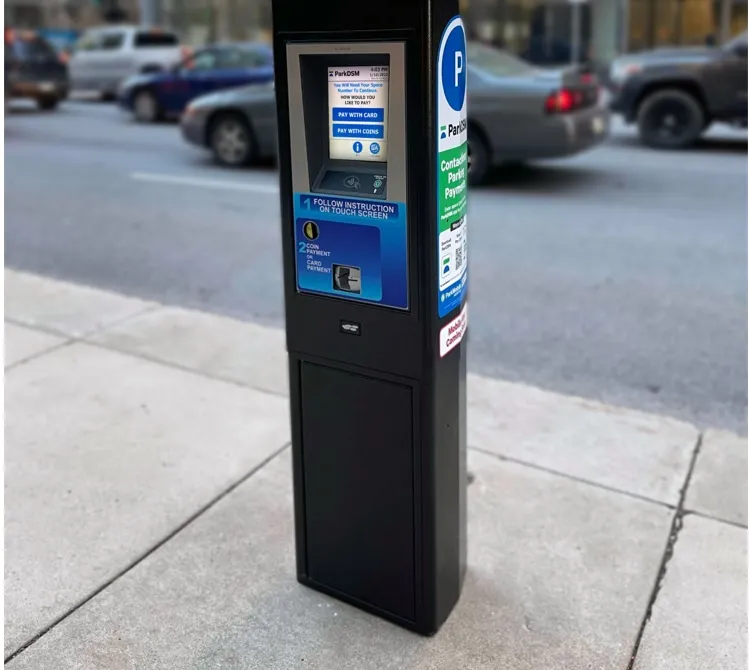
Flowbird is to provide more than 400 solar powered smart multi-space parking pay stations in the city of Des Moines in Iowa.
Flowbird says the city accommodates a daily influx of vehicles to the downtown area with a combination of six city-owned parking garages and 3,406 on-street parking spaces.
The pay stations have a 9.7” full colour touch screen and comes with features to help people stay in compliance with parking regulations, the company adds.
New payment methods such as Apple Pay and Google Pay are offered on the pay stations as well as a 'text to extend' option that allows motorists to extend the parking session from their mobile device.
The pay stations are configured for 'pay by space' parking, and the system is integrated with the city’s citation issuance system provided by Cardinal Tracking. Enforcement officers utilise wireless devices to check the status of each space. There is no need for a motorist to place their receipt on their dashboard.
The transaction data from the pay stations is sent in real-time to Flowbird’s intelligent data management suite ready to be integrated with other payment modes such as mobile phone payments. City staff can then analyse data provided by the Flowbird system in real-time, including parking activity by zone, by date and by time of day.
According to Flowbird, they can also view current and historical activity on Google Maps, helping them make critical decisions about when to change parking rates, where to place new meters and where to focus enforcement efforts.
The company insists its back-office system allows for remote changes to rates, messages, and screen layouts, ensuring that the pay stations are up to date with the latest policy details.
The project has already started with a multi-phased approach, with the city anticipating that more than 300 pay stations will be installed by the end of February. Flowbord is working with its service provider Baker Group and Des Moines-based company Quality Striping on single metre removal and sign installation.







